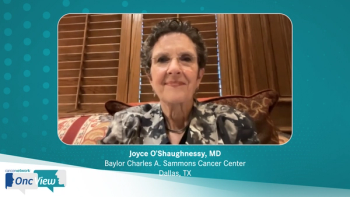
Dr. Joyce O’Shaughnessy closes the discussion with considerations for clinicians on monitoring patients with HER2-psotive breast cancer.

Your AI-Trained Oncology Knowledge Connection!


Dr. Joyce O’Shaughnessy closes the discussion with considerations for clinicians on monitoring patients with HER2-psotive breast cancer.
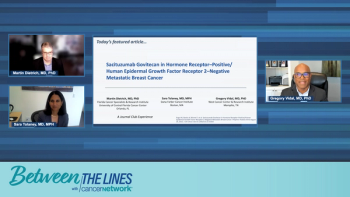
Experts discuss progression-free survival (PFS) and overall survival (OS) data from the TROPiCS-02 trial on SG versus treatment of physician’s choice.

Dr Tolaney discusses the TROPiCS-02 study design and comments on the key baseline characteristics of the patients with HR+/HER2- mBC who were enrolled in the trial.
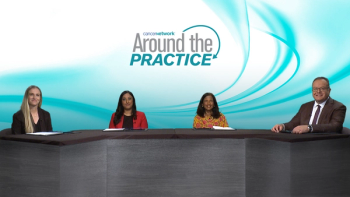
A panel of experts discusses whether all patients with multiple myeloma should undergo transplant, and how to select the optimal treatment regimens for the treatment of transplant-eligible newly-diagnosed multiple myeloma.

Amrita Krishnan, MD, presents the case of a 63-year-old woman with transplant-eligible newly-diagnosed multiple myeloma, and Caitlin Costello, MD, describes the design and outcomes of recent trials in the transplant eligible setting.
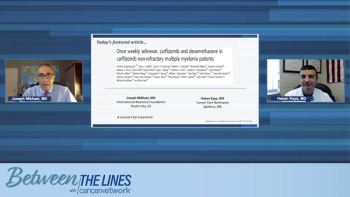
Dr Joseph Mikhael and Dr Hakan Kaya provide advice for community oncologists who use selinexor and discuss the future of selinexor in patients with R/R MM.
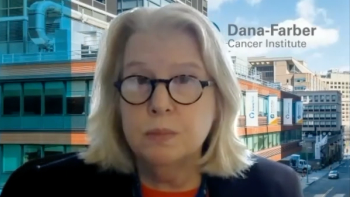
At 2022 IGCS, Ursula A. Matulonis, MD, spoke about the toxicity profile observed with mirvetuximab soravtansine monotherapy in patients with folate receptor α–high platinum-resistant ovarian cancer reported from the phase 3 SORAYA study.
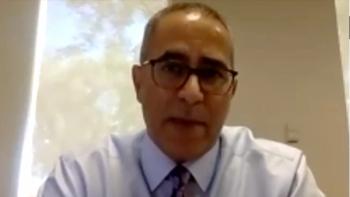
Teclistimab and similar bispecifics can have a prolific impact on patients with heavily relapsed multiple myeloma in the short term and possibly in earlier relapses in the long term, according to Joseph Mikhael, MD.
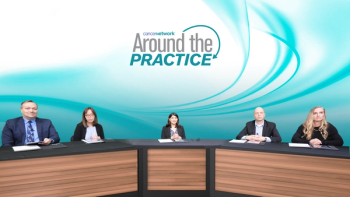
Dr Silbermann continues her discussion of BCMA-targeting agents with a look at data on the use of bispecific agents for R/R MM treatment after a patient has already received a BCMA therapy.

Key opinion leaders compare the overall benefits of CAR-T therapy and share some advice for managing the toxicities of CAR-T therapy as a patient transitions back to their local doctor.
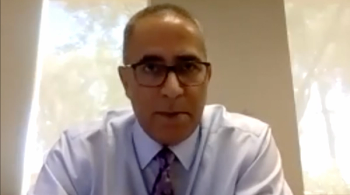
Joseph Mikhael, MD, discussed the need for increased diversity in clinical trials, specifically in the hematology space.

Ursula A. Matulonis, MD, spoke about the updated results of the phase 3 SORAYA trial with mirvetuximab soravtansine in patients with folate receptor α–high platinum-resistant ovarian cancer presented at 2022 IGCS.
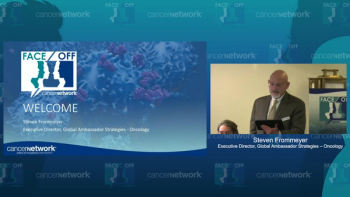
Clifton Mo, MD, presents data from the INSURE study, a pooled analysis evaluating patients with relapsed/refractory multiple myeloma treated with Ixazomib-Lenalidomide-Dexamethasone (IRd).

Michael Mauro, MD, presents data on a phase 2 ponatinib dose-ranging study in chronic-phase CML.

Steven Frommeyer introduces the two teams of competing physicians participating in Cancer Network® Face-off.

Steven Frommeyer introduces the two teams of competing physicians participating in Cancer Network® Face-off.
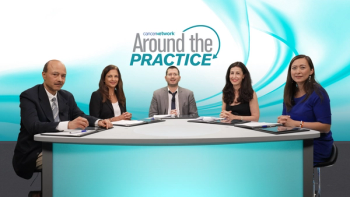
Centering discussion on a clinical scenario of metastatic urothelial carcinoma, panelists determine which first-line regimen they would utilize prior to maintenance therapy.

A panel of experts reviews key clinical trial data supporting use of maintenance therapy in metastatic urothelial carcinoma.

Advice for clinicians on how to discuss treatment and management strategies with patients with HER2-postitive breast cancer.

Discussion centered around the how the COVID-19 pandemic has influenced clinical treatment decisions across patients with HER2-positive breast cancer.

Dr Vidal elaborates on the role of trophoblast cell-surface antigen 2 (Trop-2) in metastatic breast cancer and discusses the rationale for using Trop-2–directed antibody-drug conjugates (ADCs), including sacituzumab govitecan (SG), in patients with the disease.

Sara Tolaney, MD, MPH introduces the 2022 Journal of Clinical Oncology preprint publication, “Sacituzumab Govitecan in Hormone Receptor–Positive/ Human Epidermal Growth Factor Receptor 2–Negative Metastatic Breast Cancer” and invites Martin Dietrich, MD, PhD and Gregory Vidal, MD, PhD to comment on the typical patients with hormone receptor–positive (HR+)/human epidermal growth factor receptor 2–negative (HER2-) metastatic breast cancer (mBC) who they see in their clinical practice.

Two experienced clinicians share their thoughts on the safety of selinexor, including how they optimize dosing to prioritize patient comfort.

Dr Mikhael and Dr Kaya discuss the clinical implications and share their thoughts on the use of selinexor, carfilzomib and dexamethasone in patients with R/R MM.

Drs Sidana and Silbermann describe the currently available treatment options for early- and late-relapse MM, and how to select an appropriate regimen.
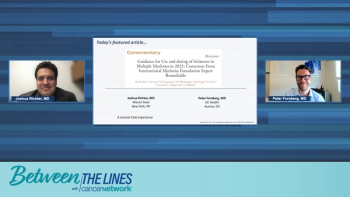
Dr. Joshua Richter and Dr. Peter Forsberg close their discission with thoughtful advice for clinicians regarding the current and future treatment of patients with R/R MM.

An explanation of the mechanism of action of bispecific antibodies and their use in relapsed/refractory multiple myeloma treatment.

Joseph Mikhael, MD, in a conversation on important presentations from the 2022 International Myeloma Society Annual Meeting, highlighted key findings with lenalidomide plus RVd and stem cell transplant in patients with high-risk multiple myeloma.
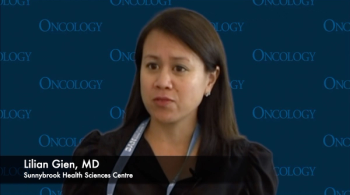
Lillian Gien, MD, spoke about continued use of immunotherapy in patients with recurrent clear cell carcinoma of the ovary following results of a trial examining pembrolizumab plus epacadostat.
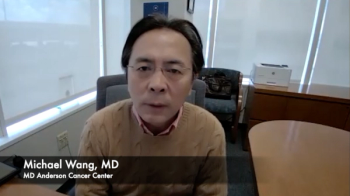
Michael Wang, MD, spoke about key data from the phase 3 SHINE trial which analyzed the use of first-line ibrutinib plus bendamustine and rituximab in older patients with mantle cell lymphoma.